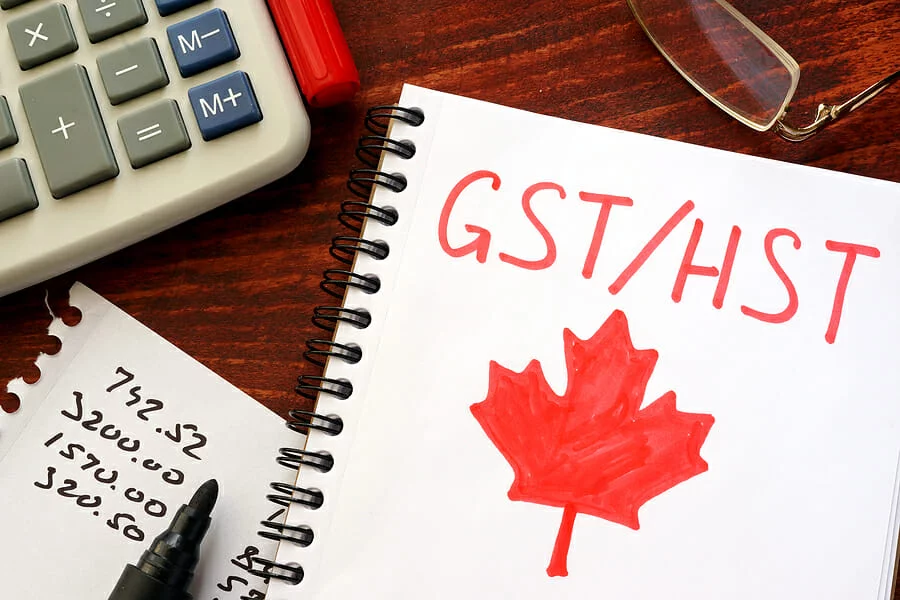
By: jnawali
Tax Services
Comments: No Comments.
If you are a small business owner in Canada, you should know that when your revenues for taxable supplies exceed $30,000 in any four consecutive quarters, you must register for GST/HST. You must then start filing GST/HST returns annually, quarterly or monthly, as your situation permits.
If you are new to the subject, here is everything you need to know about small businesses, GST/HST liability and common GST/HST mistakes that most small businesses make. You can also avail of small businesses tax services in Toronto for help in filing your taxes.
Do small businesses have to pay HST?
The law pertaining to small businesses tax returns in Toronto clearly states that if you have exceeded the $30,000 threshold in a single calendar quarter, then you no longer categorized as a small supplier. Your next step should be to register for GST/HST and your effective date of registration is no later than the day of the supply that made you exceed the threshold amount. You should also start charging GST/HST on the supply that made you exceed the threshold amount.
If you have registered the $30,000 threshold over the previous four quarters but not in a single consecutive quarter, you are, again, no longer considered a small supplier at the end of the month following the quarter in which you exceed $30, 000. In this scenario too, you must register for GST/HST without delay.
How do small businesses claim HST?
If you are a small business owner and have registered for GST/HST, then you can claim the amount you have paid out by claiming it through Input Tax Credits (ITCs). When you complete your return, you declare the amount you have collected from customers and deduct your ITCs from the amount. If the resultant amount is negative, you will get your refund. If you need expert help to understand this better, you can hire small business tax services in Toronto to guide you.
Common Mistakes
The complexity of the GST/HST filing process and the limited knowledge that small business owners have regarding it are generally the reasons for mistakes in the GST/HST filing and claiming process. Here are the most common seven GST/HST errors that small businesses make and how to avoid them:
#1. Claiming ITCs without Proper Documentation
As a registrant, you must understand that you need not submit the supporting documents when claiming the small business tax returns in Toronto. However, you must have them handy in case of an audit. In such an event, the CRA will review all relevant documents to ensure that your documents conform to your ITC requirements. Not having the right documents can cost you heavily.
#2. Invoice in Wrong Company Name
Another common mistake is from vendors who come under a single group company name. It is critical that the invoice is in the name of the business claiming the ITC and not in the name of the group company. If there is a disparity, the CRA will disallow the claim. In such a case, the vendor may be asked to reissue an invoice.
#3. Claiming 100% of ITCs when a portion of the related revenue is exempt
This is another common mistake. Small businesses can only claim the amount to the extent that the underlying disbursement is used in the course of the business’s commercial activity.
#4. Claiming 100% ITCs on meals & entertainment and passenger vehicles
The GST/HST rules are similar to income tax rules when it comes to claiming ITCs on meals, entertainment and passenger vehicles. Only 50 percent of the GST/HST incurred on these expenses can be claimed as ITC. This same rule is applicable to passenger vehicles and so must be carefully considered when filing small business tax returns in Toronto!
#5. Inter-Corporate Revenues and Expenses
Inter-corporate revenues and expenses were an election available to closely related companies. This allowed businesses to treat supplies made between them to be for nil consideration. However, there have been changes and hence it is advisable for small business owners to consult tax consultants in Toronto while filing claims under intercompany transactions.
#6. Automobile Expenses
When a personal vehicle is used for business purposes, the prorated portion of the expenses can be deducted against the income. However, a common oversight among business owners while filing corporate tax returns in Canada is that the ITC claim is not prorated by the respective business use portion as well.
#7. Failure to collect GST/HST on the disposition of assets
Another extremely common miss in terms of GST/HST filing is that usually, the focus is on the mainstream transactions. Smaller, one-off transactions such as trading in a used vehicle or sale of an asset that was not directly related to the main business are forgotten. It is important for a small business owner considers GST/HST liabilities in these smaller, seemingly insignificant, transactions too or these could kick up a storm during a CRA audit.
Understanding the nuances of GST/HST may come across complex. So if you want expert guidance and support in filing your GST/HST claim, you can reach out to the experts at Apex Accounting – the leading tax consultants in Toronto!
Why Apex Accounting?
At Apex Accounting, our experts can take care of your GST fillings and ensure that the payments are made within the due dates to avoid penalties. We have the skills and knowledge to customize our approach based on your business size, budget, and needs. To know more about our small business tax services in Toronto, you can connect with us by writing to info@apexaccounting.ca or calling us at (647) 979-7728!
